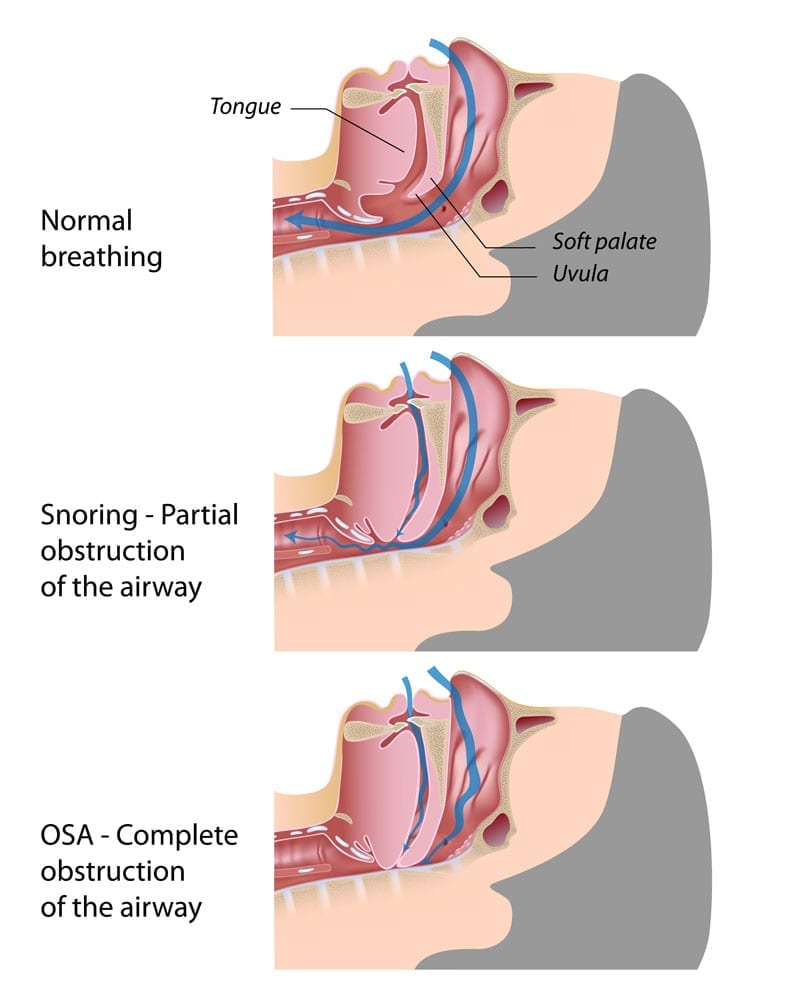Symptoms and Health Risks of Sleep Apnea and Snoring
The quality of your night’s sleep is vital to overall health and well-being. Snoring is not just embarrassing and disturbing; it hinders your quality of sleep. It can also be associated with troubling medical complications.
Sleep Apnea and Snoring: Overview and Common Symptoms
Sleep apnea occurs when your breathing rhythm is interrupted during sleep. If you have this condition, your breathing stops multiple times per night, depriving the brain of oxygen.

Snoring is the characteristic hoarse sound produced as air moves over relaxed throat tissues, causing involuntary vibrations. Almost everyone has occasional snoring, but some people have a chronic snoring problem.
Snoring is closely related to obstructive sleep apnea, which is a serious sleep disorder. While not everyone who snores has an obstructive sleep disorder, the following symptoms can confirm the condition:
- Morning headaches
- Breathing pauses when asleep
- Sore throat immediately after waking up
- Choking and gasping at night
- Restless sleep patterns
- Chest pains at night
- Hypersomnia followed by insomnia
Sleep apnea and snoring are serious disorders that may lead to several health complications if left untreated. The health complications include:
1. Heart Disease
Studies have shown a direct link between sleep apnea and heart problems like coronary artery disease and high blood pressure. People suffering from sleep apnea are at a higher risk of developing fatal heart attacks and non-fatal heart conditions.
Individuals with a long history of snoring are more likely to develop Arrhythmia, also called irregular heart rhythm. Consequently, it can have adverse effects on your heart’s conductivity, and long-term apnea tends to enlarge the left atrium.
2. Stroke
Medical data from sleep studies have revealed that snoring intensity is directly proportional to the chances of developing carotid atherosclerosis. This condition arises due to shrinking neck arteries and can lead to stroke.
Carotid arteries ensure a constant blood supply to your brain, and if interrupted, stroke is imminent. Therefore, long and loud snores at night put you at a higher risk of getting a stroke.
3. Injury
Snoring and sleep apnea cause severe sleep deprivation, leading to an increased probability of fatal injuries. Feeling sleepy and tired during the day can expose you to risks as you go through daily tasks.
Due to lack of sufficient sleep at night, you are more likely to fall asleep when operating machinery or driving. According to health studies, experiencing daytime sleepiness is related to higher injury risks.
Conclusion
While snoring can be a common occurrence for some people, it can also point to bigger health issues. If you notice any signs of sleep apnea, it’s important to seek medical help.